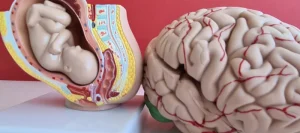
People often need to address past trauma or familial issues during this time. The mental challenge of this stage is not to let anything make you feel defeated. Since withdrawal symptoms tend to ebb and flow, you may be tempted to feel like you’re not making progress ― even though in reality, you’ve https://ecosoberhouse.com/ come a long way. During this stage, most people focus their energy on coping with cravings and resisting the urge to drink. So far, there’s no consensus on the medical definition of recovery in alcohol treatment literature. In some people, the initial reaction may feel like an increase in energy.

Alcohol Poisoning: How Much Alcohol Is Too Much?
The level of intoxication depends on how much alcohol has been consumed. In the Gaudiya Vaishnavism branch of Hinduism, one of the four regulative principles forbids the taking of intoxicants, including alcohol. In some countries, there are special facilities, sometimes known as “drunk tanks”, for the temporary detention of persons found to be drunk. This stage can be very dangerous and even fatal if a person chokes on their vomit or becomes critically injured. They may also experience seizures or have blue-tinged or pale skin. At this stage, you will no longer respond to what’s happening around or to you.
Death (+.50% BAC)
A blood alcohol level of 0.08, the legal limit for drinking, takes around five and a half hours to leave your system. Alcohol will stay in urine for up to 80 hours and in hair follicles for up to three months. Drinking too much and too quickly can lead to significant impairments in motor coordination, decision-making, impulse control, and other functions, increasing the risk of harm. Continuing to drink despite clear signs of significant impairments can result in an alcohol overdose. People cannot treat severe alcohol intoxication — or alcohol poisoning — at home.
- Some people may feel so “broken” that they almost feel they can no longer experience joy and confidence, or have healthy relationships again.
- The signs and symptoms of alcohol intoxication result in alterations in a person’s consciousness, cognition, perception, judgment, affect, or behavior.
- As you drink, alcohol goes into your bloodstream and affects your brain and body functions.
- There is nothing that you can do to counteract alcohol’s toxic effects or speed up its elimination from the body.
- Although young people are most likely to engage in binge drinking, deaths from alcohol poisoning usually involve men between the ages of 35 and 64, according to the CDC.
- At this stage of intoxication, the person’s behavior will be normal with no visible signs of intoxication, such as slurred speech or delayed reaction time.
Alcohol poisoning prevention
Alcohol use disorder includes a level of drinking that’s sometimes called alcoholism. If you consume alcohol at a faster rate than your liver can process it, the level of alcohol in your blood will become higher and higher. Even after you stop drinking or pass out, your stomach and intestines will continue absorbing alcohol for quite some time. Measuring the alcohol concentration blood alcohol concentration (BAC) is the most accurate measurement of the alcohol level. Particularly in regular drinkers, symptoms and the BAC do not necessarily relate to each other, making an accurate measurement beneficial.


Alcohol poisoning is severe or life threatening impairment. Several functions — including speech, balance, coordination, judgment, and reaction times — are significantly impaired. Memory gaps or blackouts may also occur, and the person may vomit. Although young people are most likely to engage in binge drinking, stages of alcohol intoxication deaths from alcohol poisoning usually involve men between the ages of 35 and 64, according to the CDC. And middle-aged people are more likely than younger ones to take prescription drugs, which can increase the severity of alcohol poisoning. On average, the liver can metabolize 1 ounce of alcohol every hour.
Getting Help For Alcoholism

























Leave A Comment